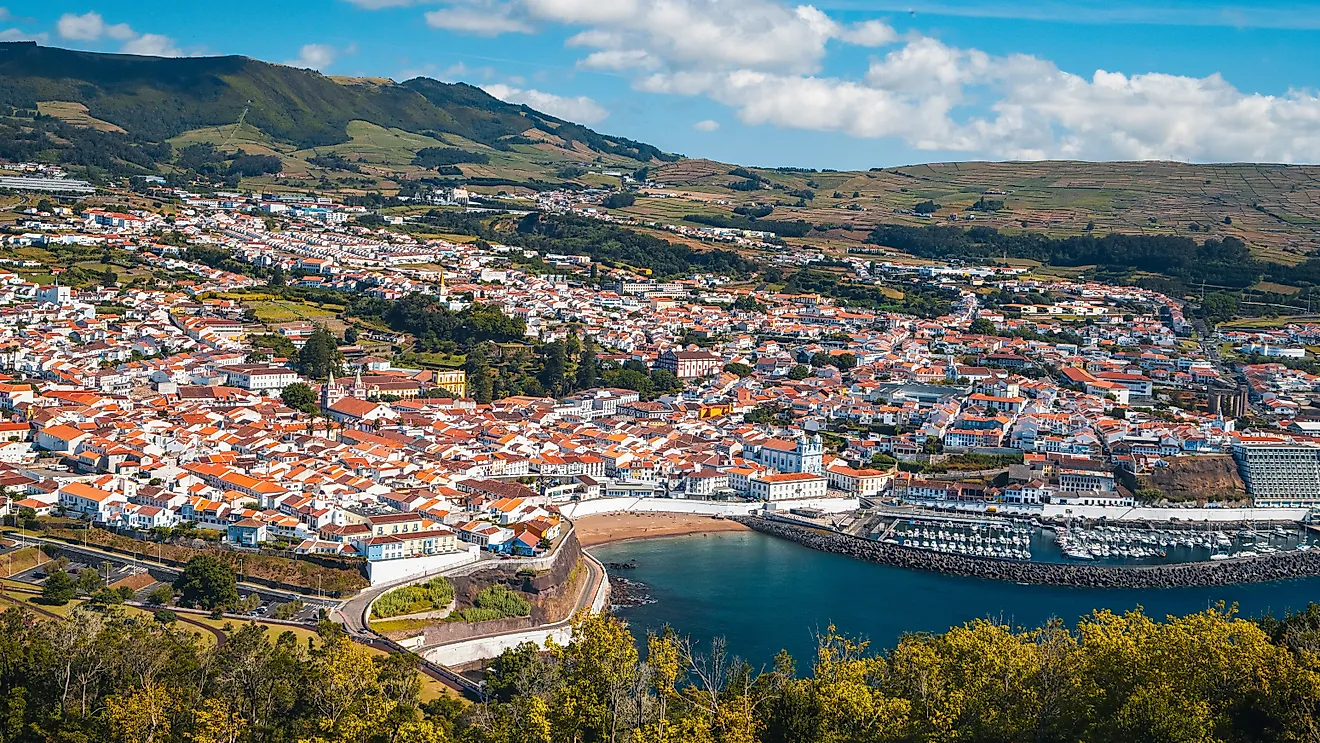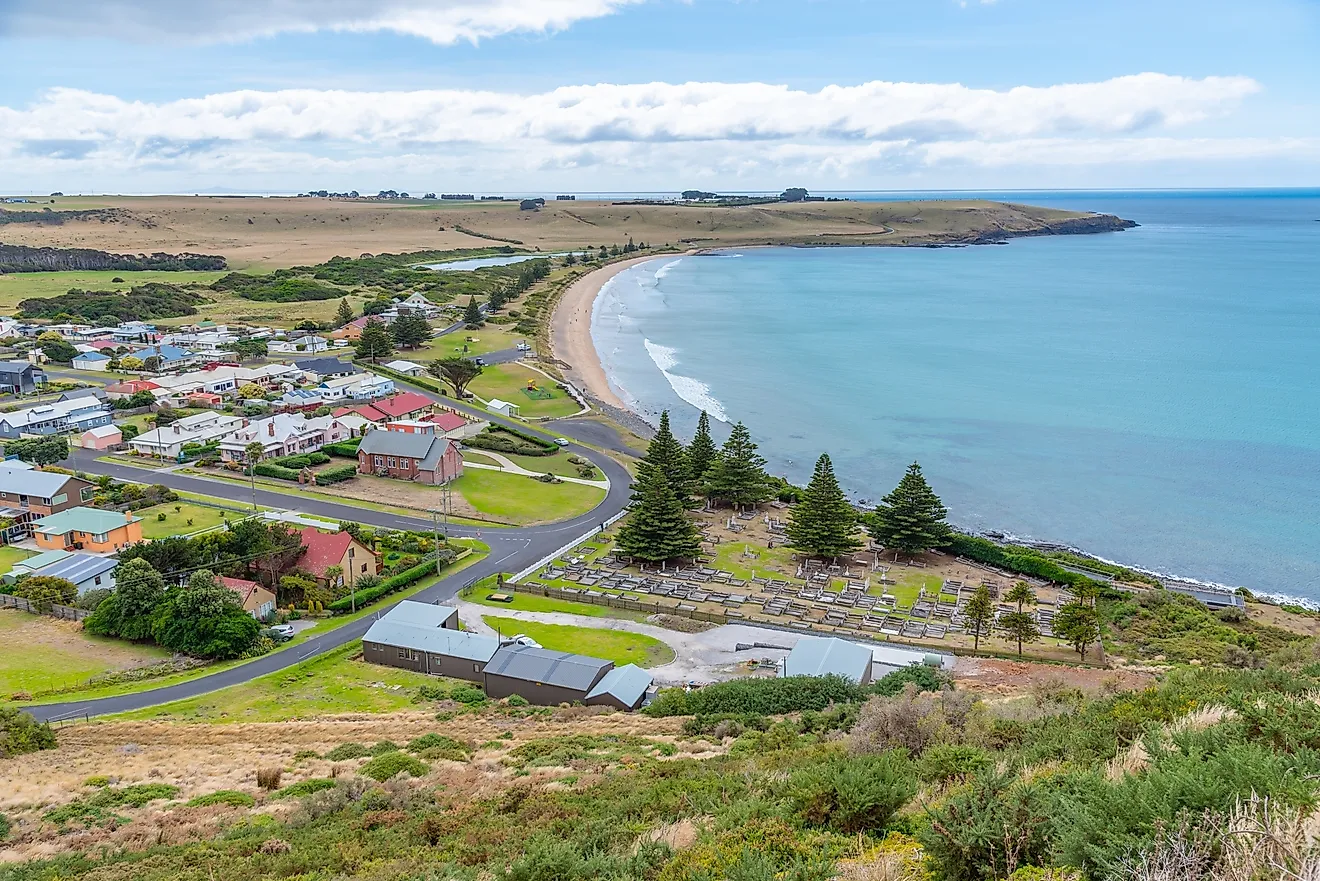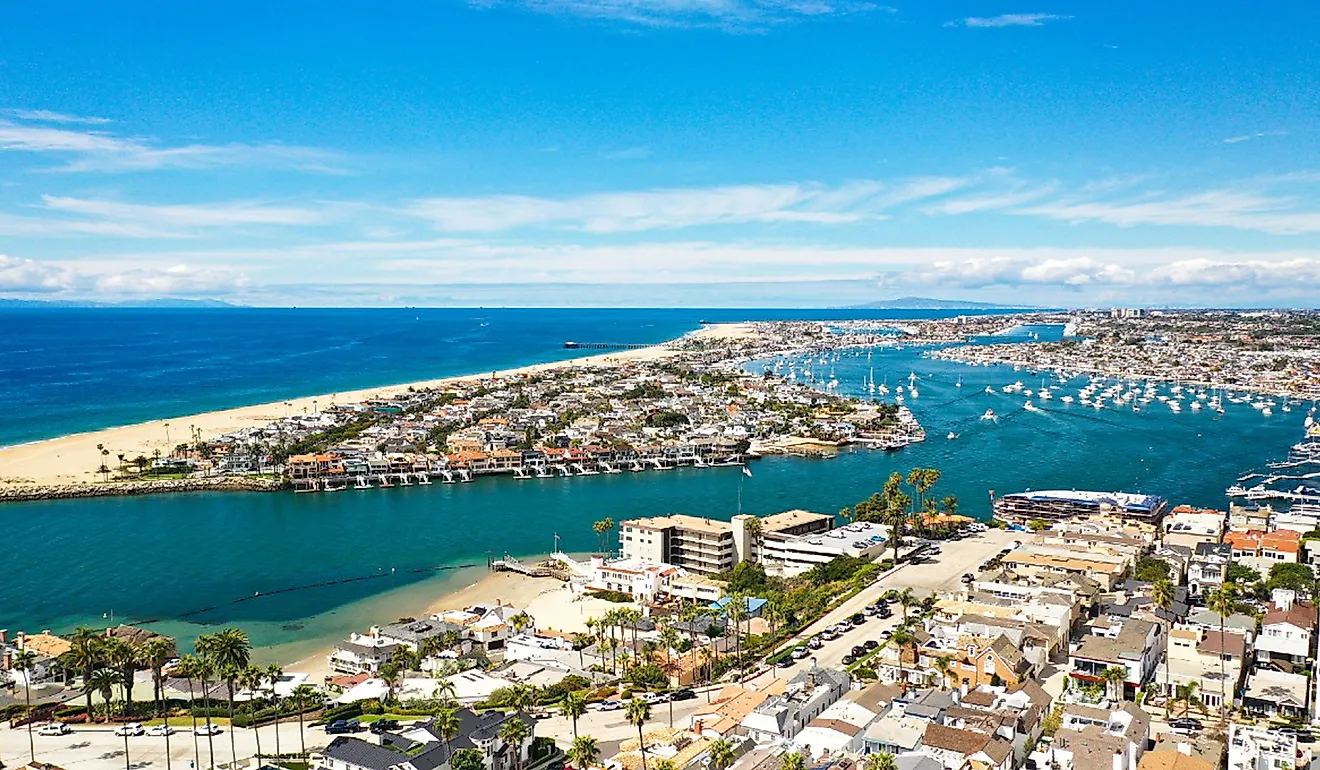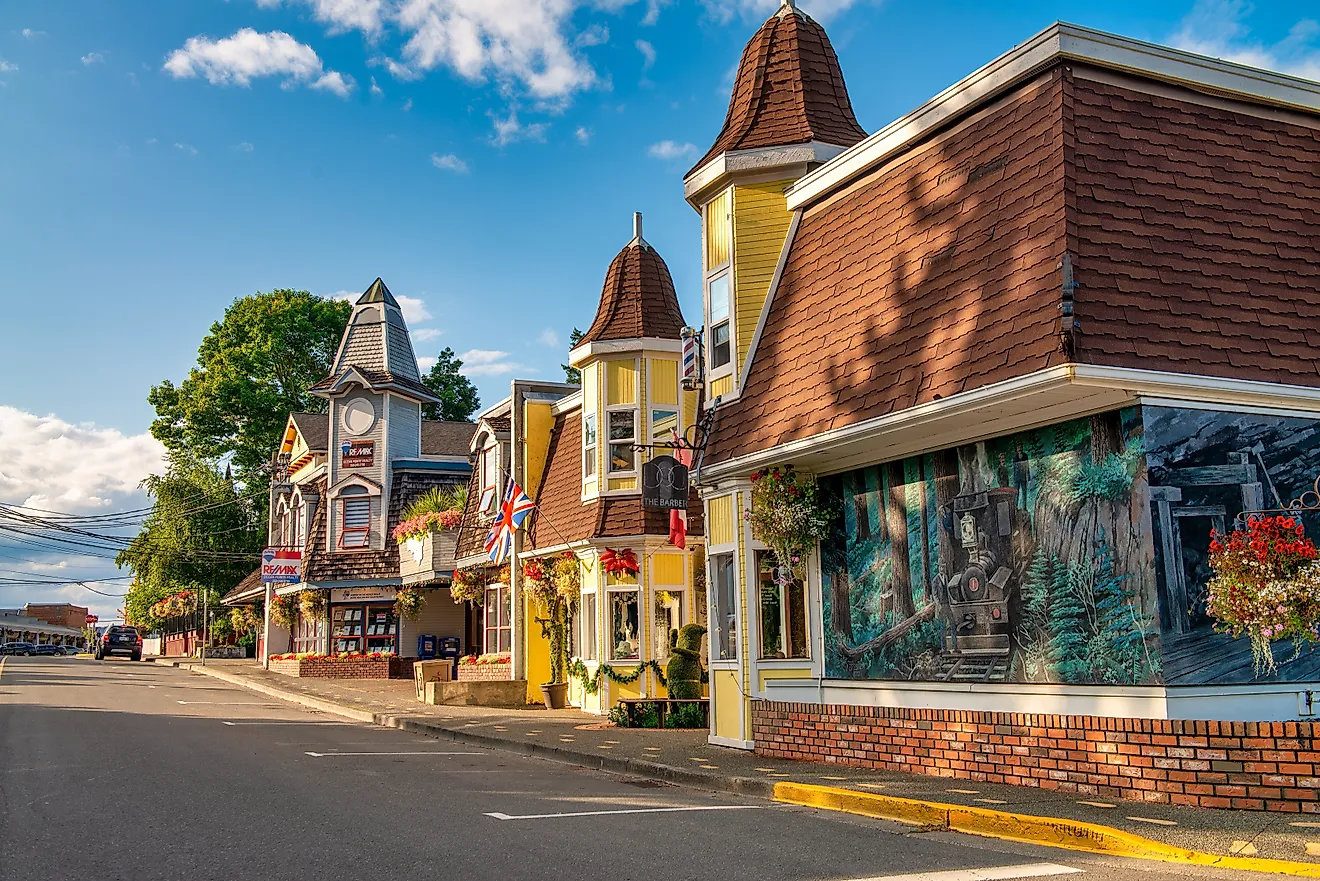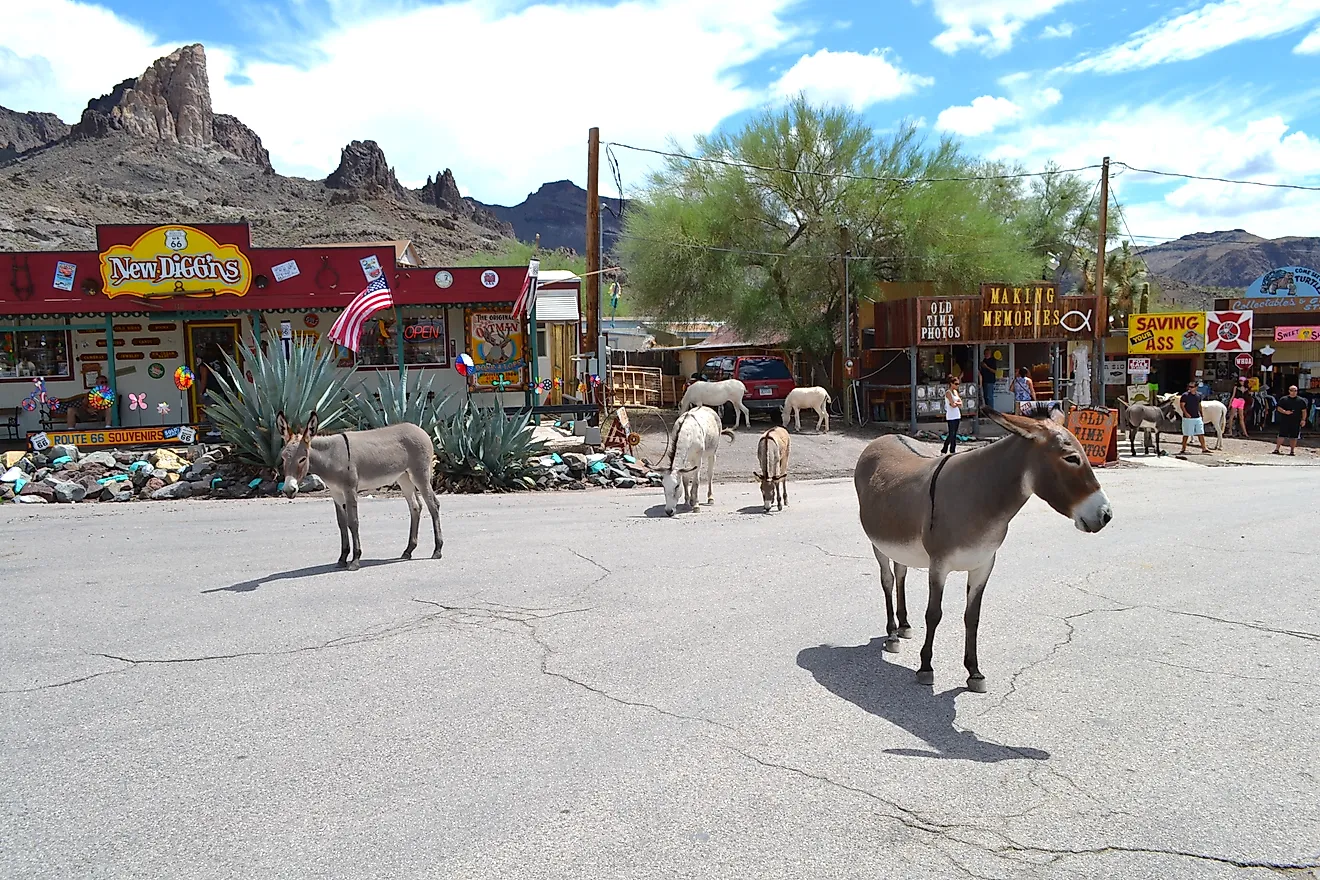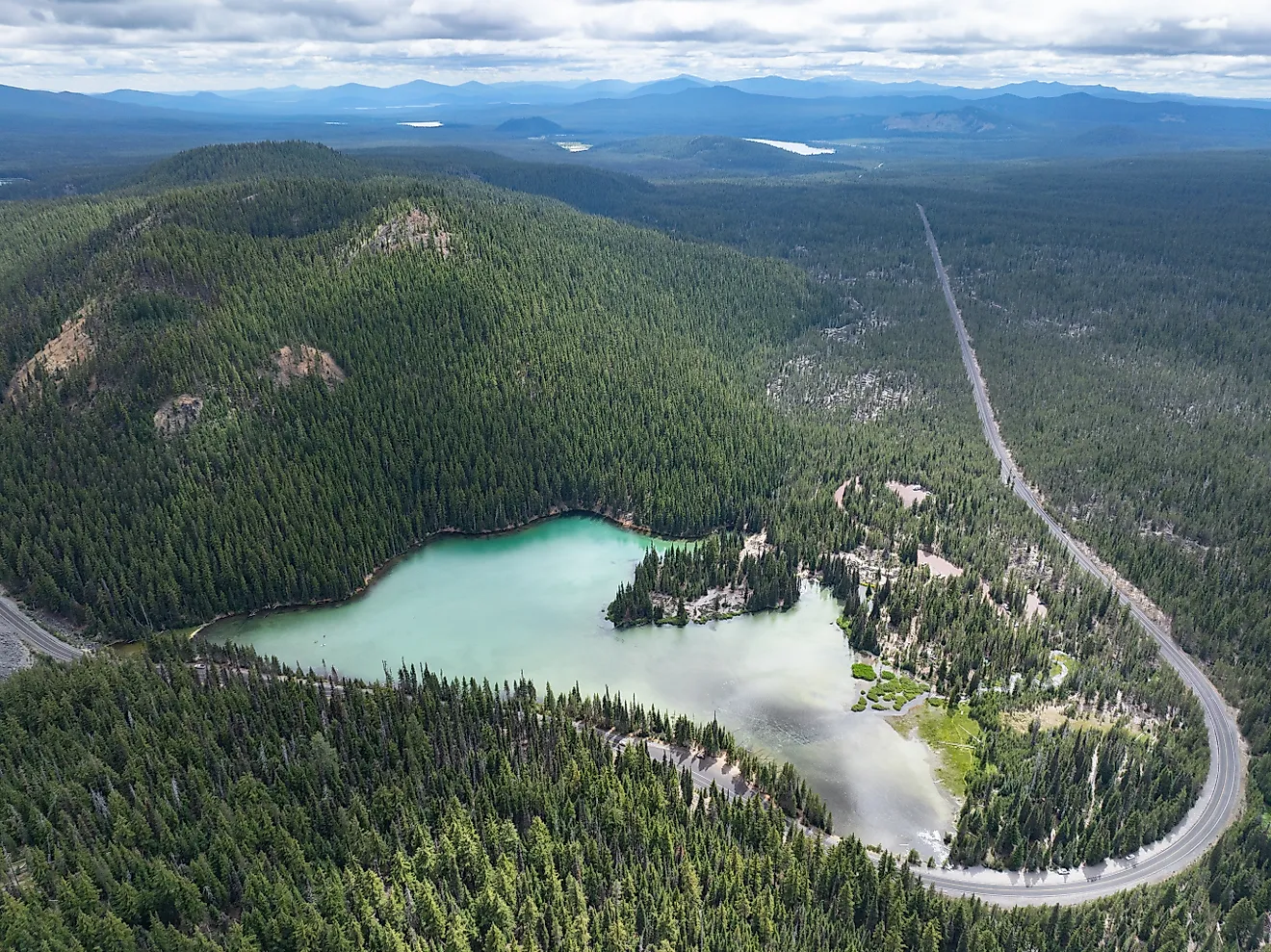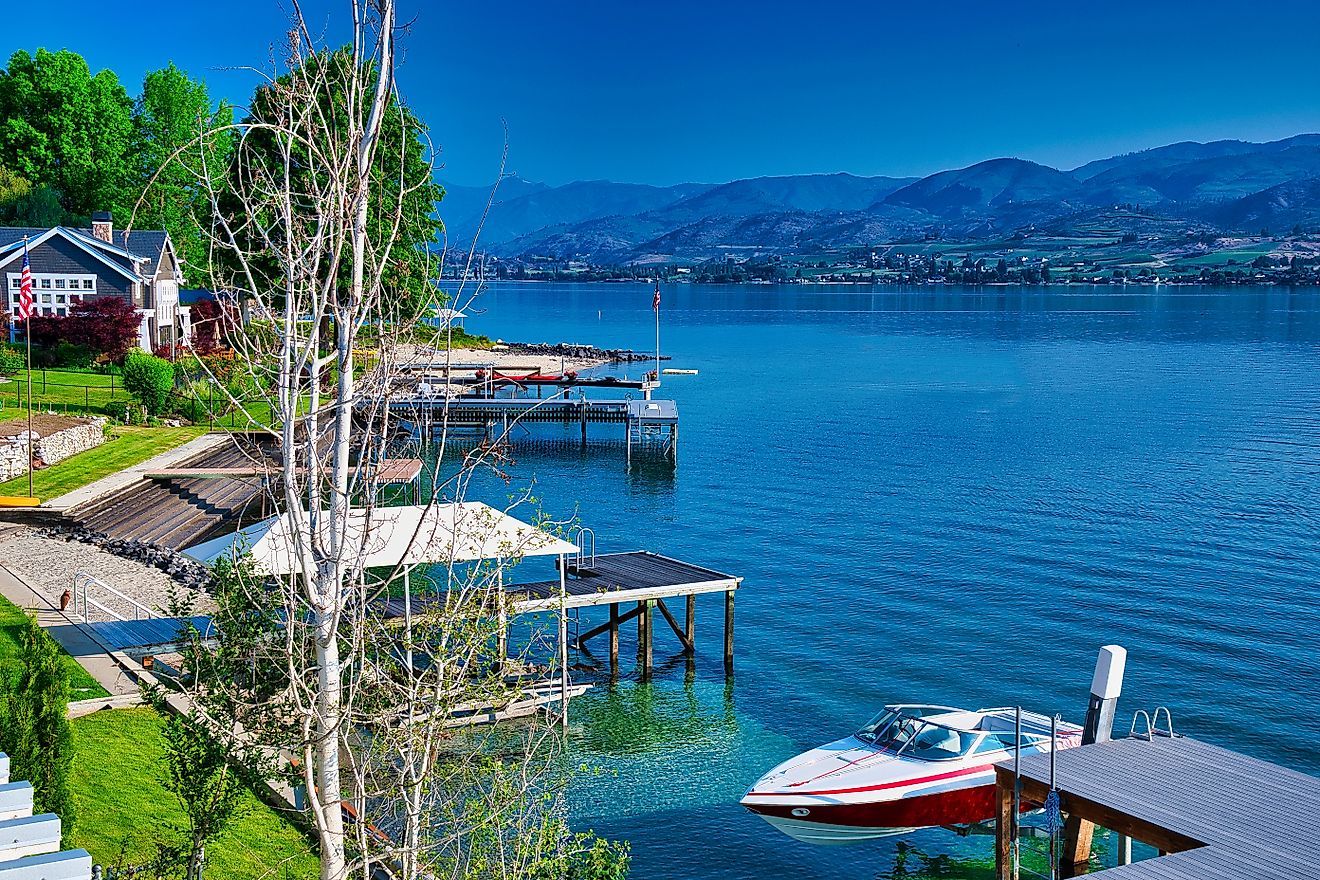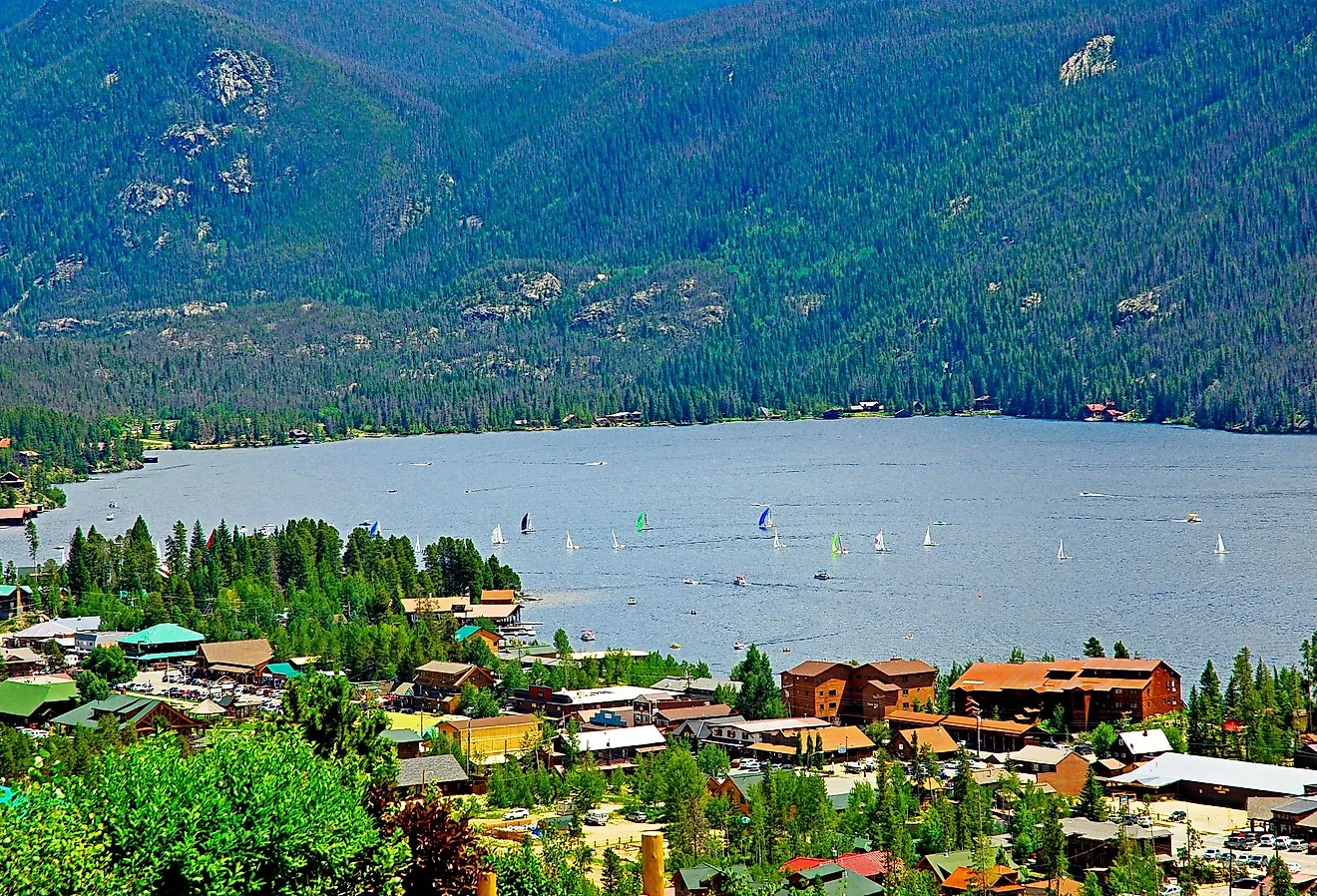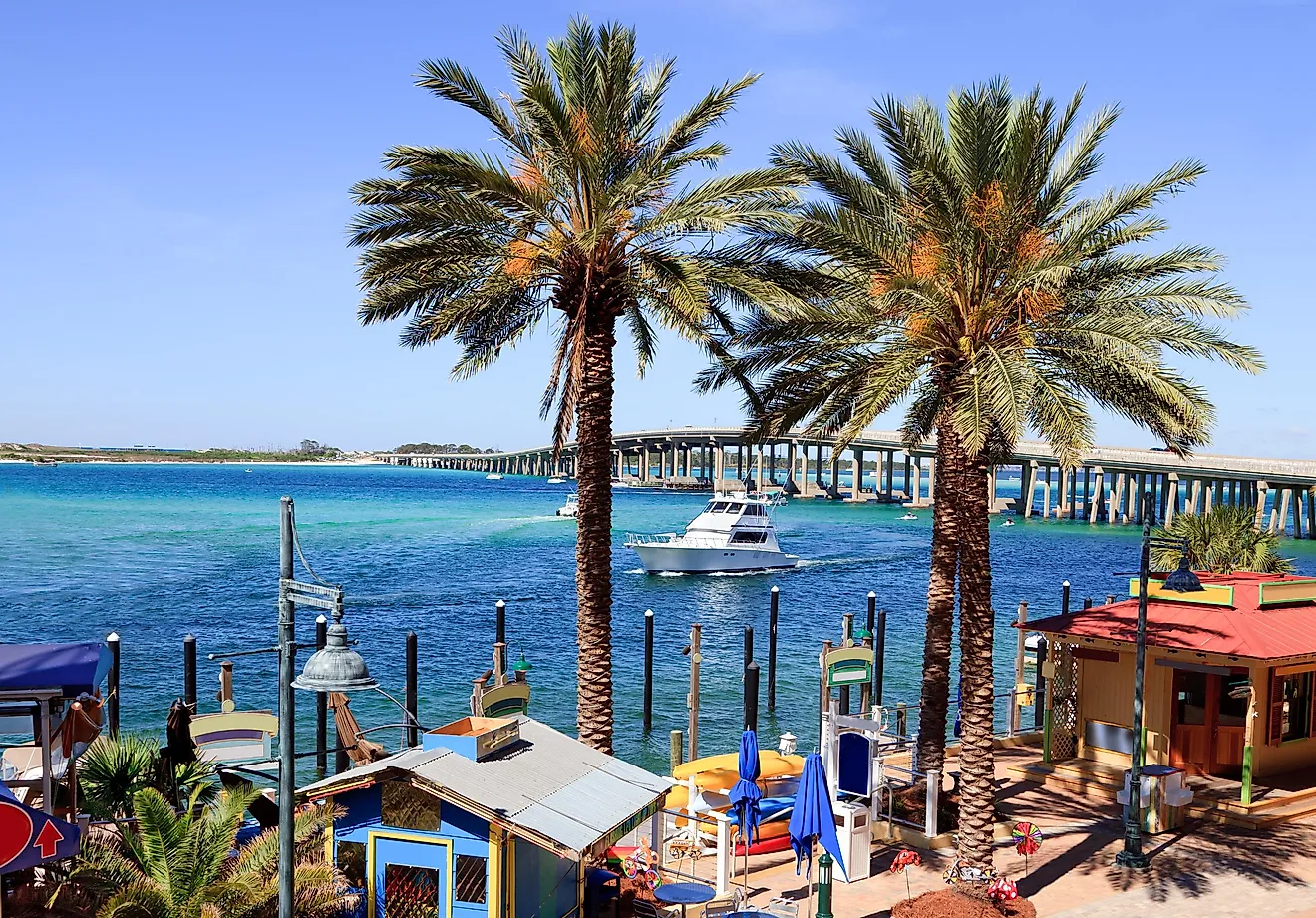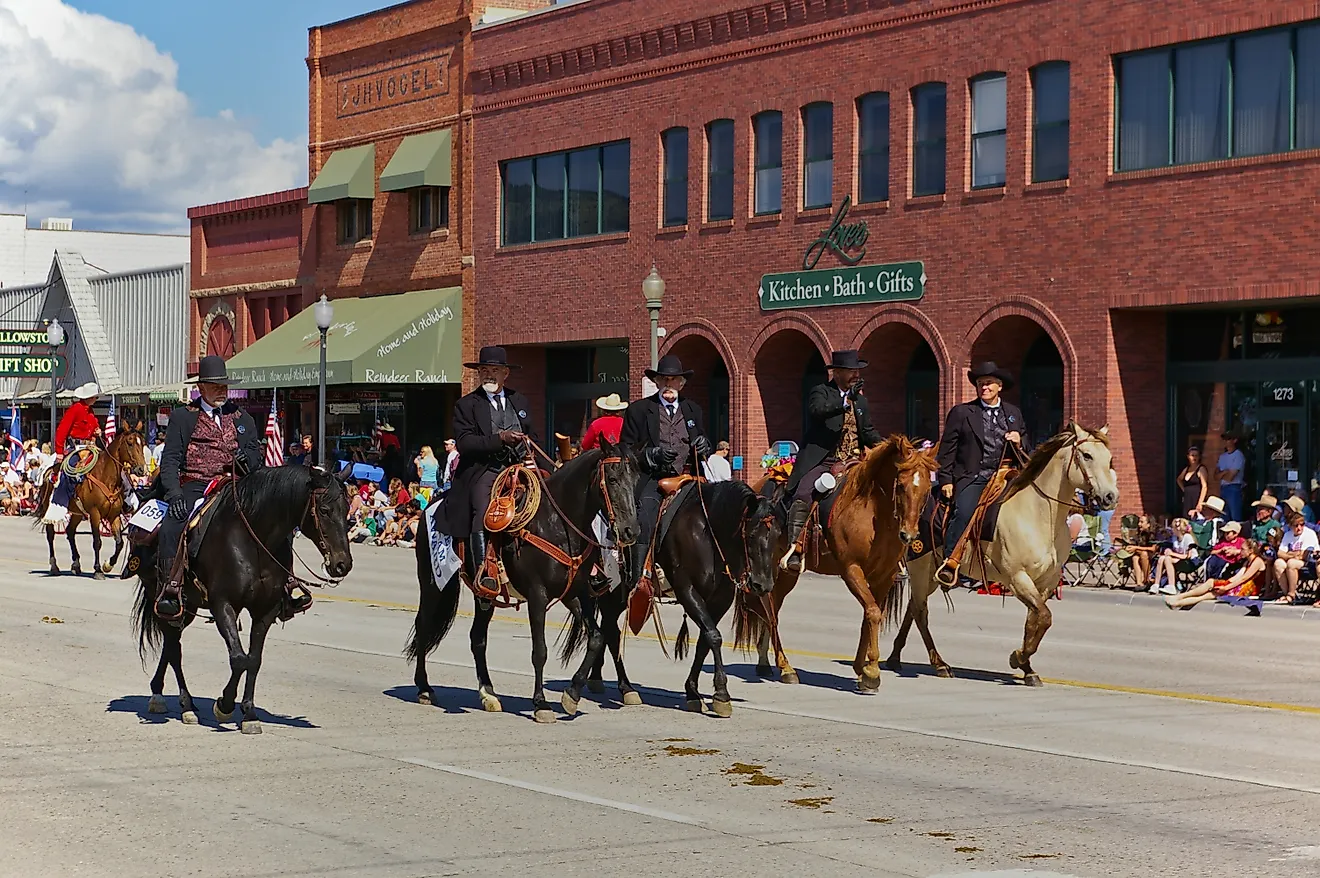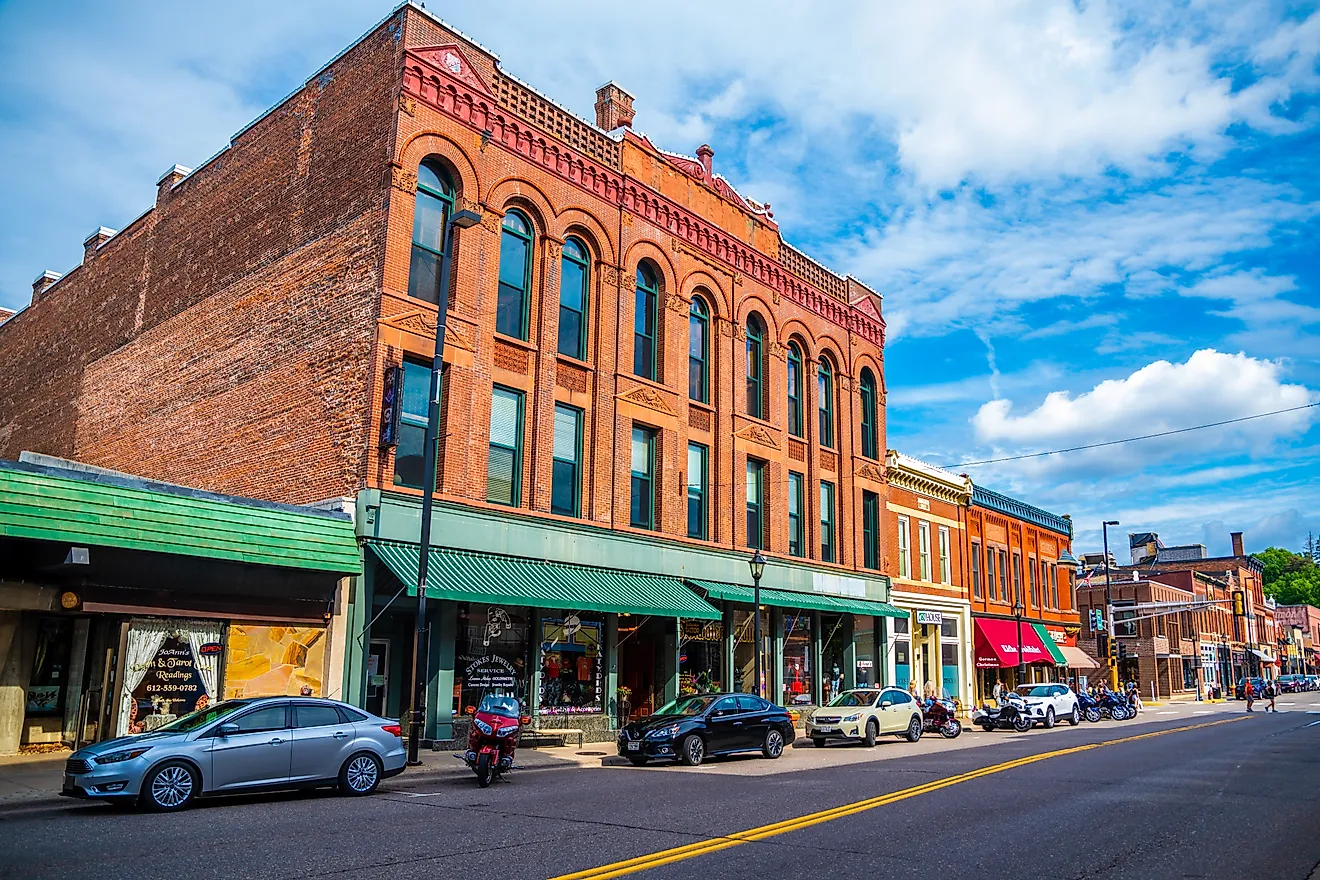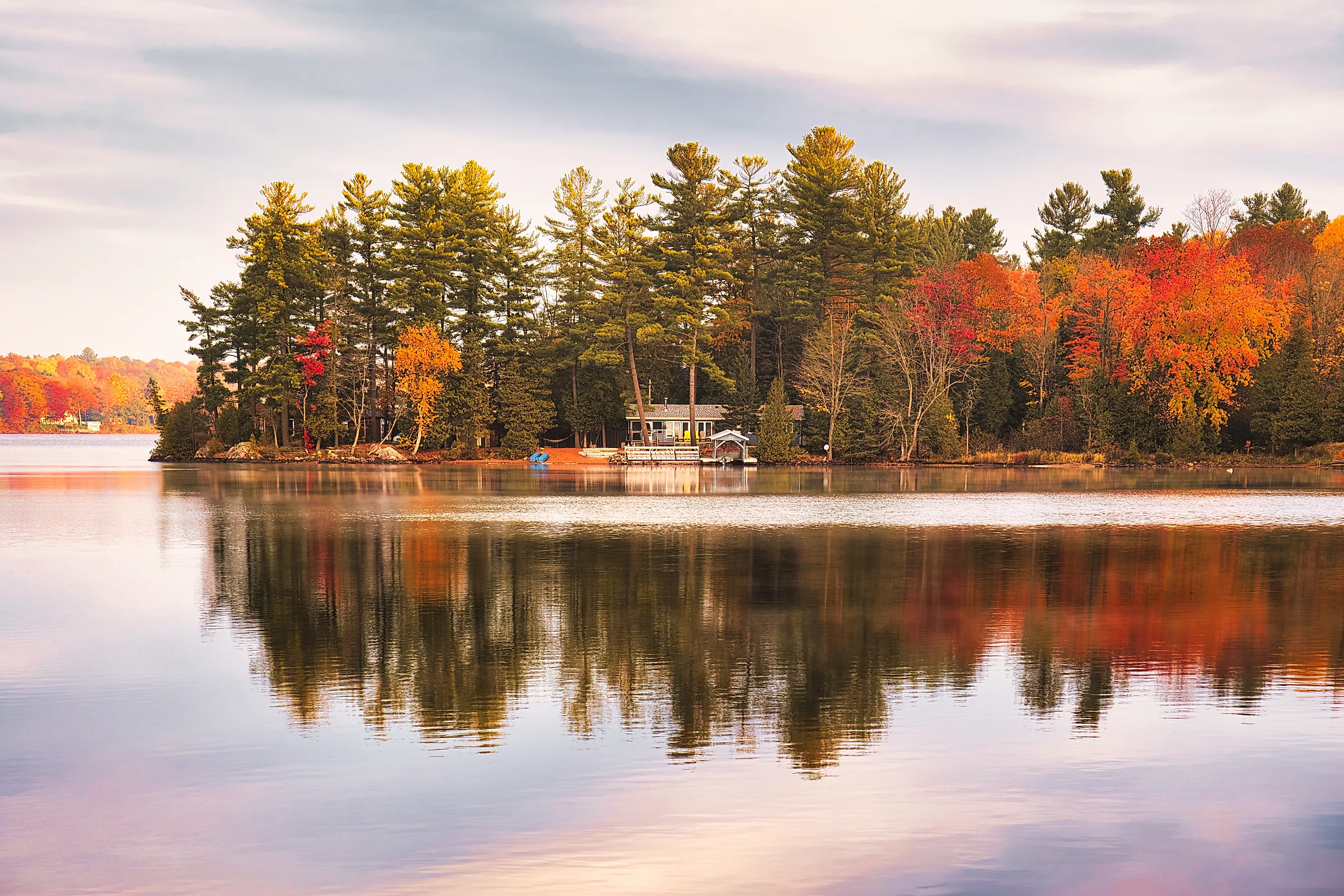
7 Bizarrely Named Towns In Ontario
You can learn a lot about a place by its name. Oftentimes, it’ll give you insight into the town’s history or point to a quirk in its geography that explains how it came to be. But language changes, and a word that means one thing when a town is founded might have taken on a completely different meaning a century or so down the line - one that’s now funny, crass, or just a little bit unfortunate. And sometimes, well-meaning town founders just don’t realize how the name they chose will sound. Thus, there are countless towns with names that are more baffling than enlightening, and the Canadian province of Ontario has plenty of these.
Crotch Lake
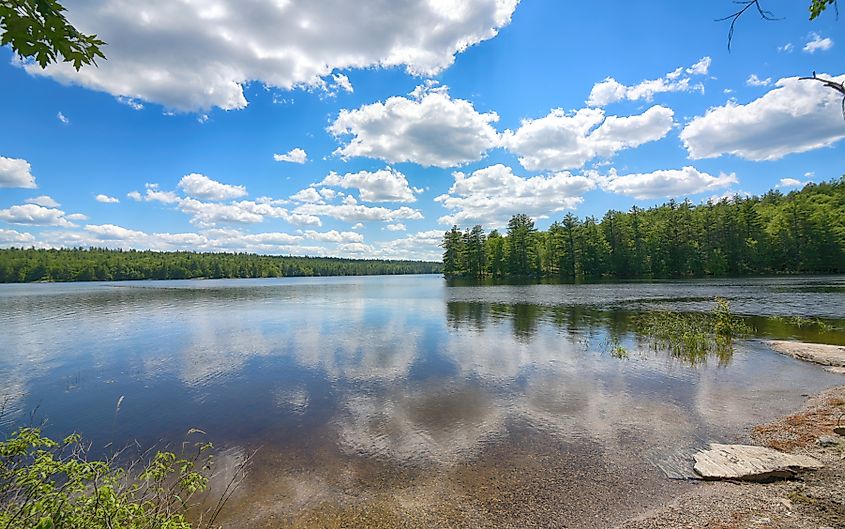
Kicking off this list is a truly unfortunate name that makes a lot more sense if you consider that “crotch” doesn’t only have one meaning. Although the name sounds rather vulgar when taken out of context, it was actually chosen to reflect the titular lake’s geography, and it’s got nothing to do with human anatomy. Crotch Lake consists of two connected basins that are said to resemble the crotch of a tree, or the point where the trunk of a tree divides into two distinct limbs. It is an apt, if accidentally unfortunate, description of the lake’s shape.
Despite its name sounding like a bit of a joke, Crotch Lake is a picturesque, forested lake known for canoeing, fishing, and stargazing, and the nearby town is a popular destination for local outdoor enthusiasts looking to spend some quality time in nature. Visitors to Crotch Lake might be less surprised by its name than they are by its unexpected scenic beauty, so don’t count it out on account of its colorful nomenclature.
Emo
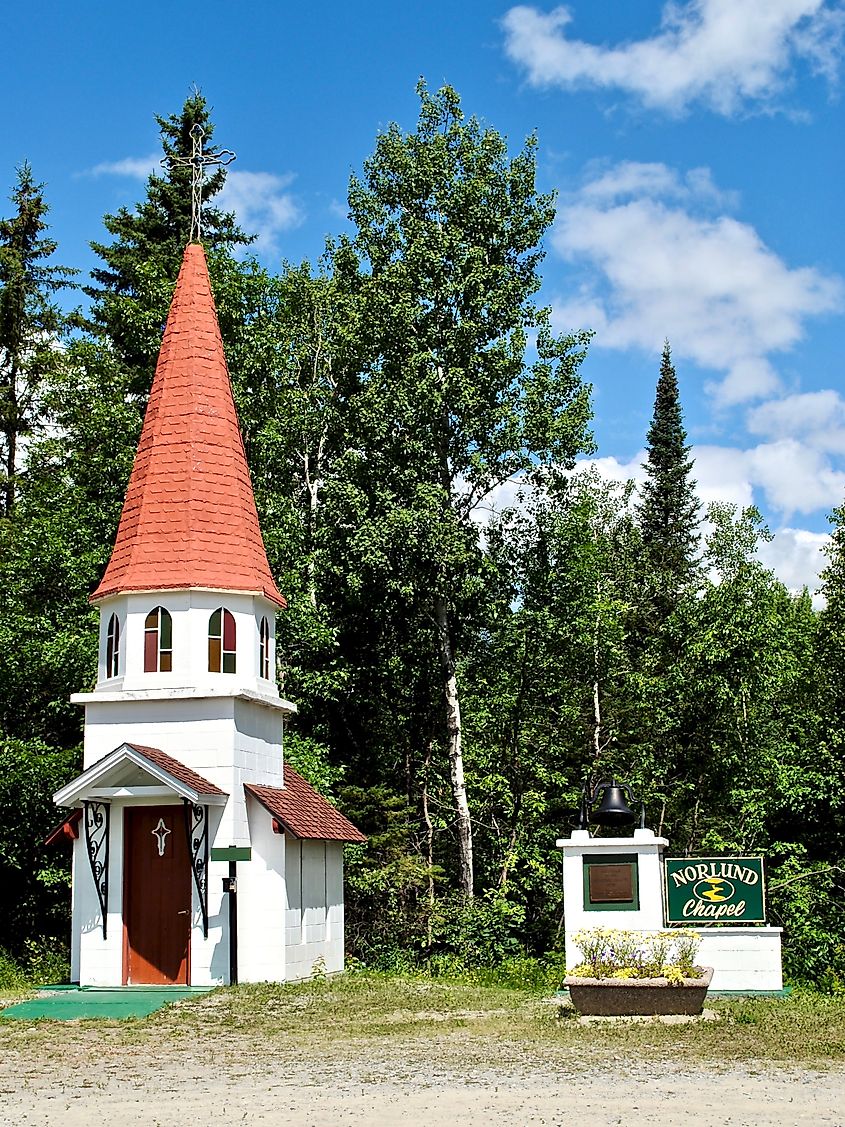
It’s not a phase, mom! This Ontario town may have gotten its name before the term “emo” started to be used in reference to a subgenre of punk musicians and their fans, but it’s here to stay. Unfortunately for any former scene kids, though, the reason for this amusing town name is pretty conventional.
Emo was founded in the 1880s in what was then rugged country, and its founders soon formed three townships that now comprise the 1,200-person town of Emo. These founding settlers were mostly Irish, and one of them chose to name the town after the Irish town he left behind. So there’s nothing edgy about Emo, after all; it’s actually just a homesick pioneer’s tribute to his birthplace.
Then again, it’s a little bit fitting that the town of Emo was named according to a man’s longing for a past to which he couldn’t return. When you get down to it, is there anything more punk than that?
Nottawa
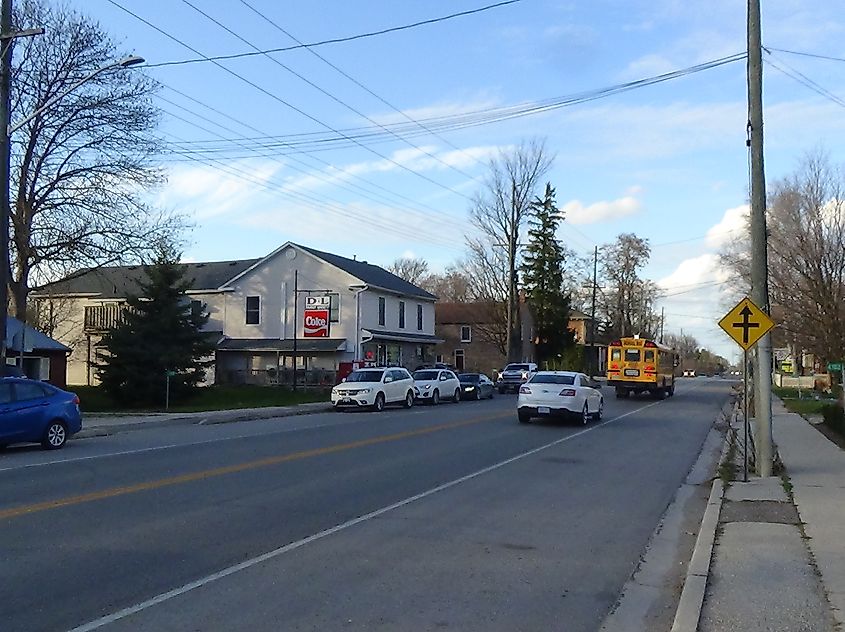
With its inevitable comparison to the Canadian capital city, Ottawa, this town just south of Collingwood is bound to make road-trippers laugh when its name pops up on road signs. And the interpretation seems pretty logical; at the end of the day, this town is indeed not Ottawa. That had to be it, right?
Not quite. Nottawa is actually an Anglicization of a word in Anishinabemowin, the language of the region’s Indigenous people. It most likely means “Iroquois,” the name of a rival group with which the Algonquin in this area both traded and clashed. The etymology of “Ottawa,” which is also Anishinabemowin, is completely different. With nearly 100 miles separating the two, it's safe to assume (though a bit disappointing) that there was no pun intended.
Pain Court
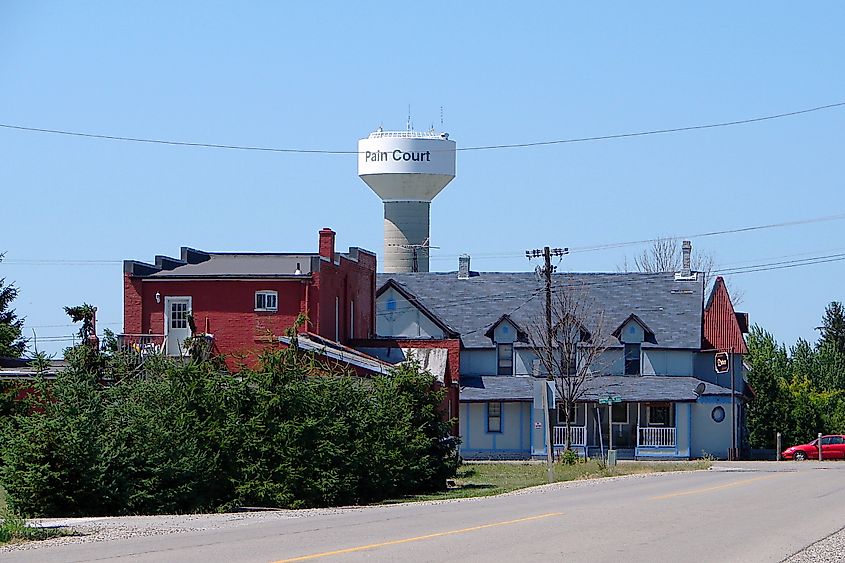
Pain Court doesn’t sound like a very pleasant place to live, does it? Located in southwestern Ontario, the farming town of Pain Court has one of the least inviting names in the province. But, don’t worry. Clear up a simple linguistic mix-up, and the name of this town sounds a whole lot less off-putting.
Although Ontario isn’t the province of Canada you’d most associate with the French, it does still have Francophone pockets. Pain Court is one of these, founded by French speakers who migrated north from Michigan in 1854. And if you speak any French, the pieces might be starting to come together, because “pain” is French for…bread.
There’s nothing threatening about this name when you realize where it comes from. “Pain court” translates to “short bread” in English, and it’s thought to be a reference to the small loaves of bread that the townspeople would give to Catholic missionaries in the area. It’s one of the earliest French-speaking settlements in Ontario. So now you know; the pleasant rural town of Pain Court is hardly as painful as it sounds.
Pickle Lake
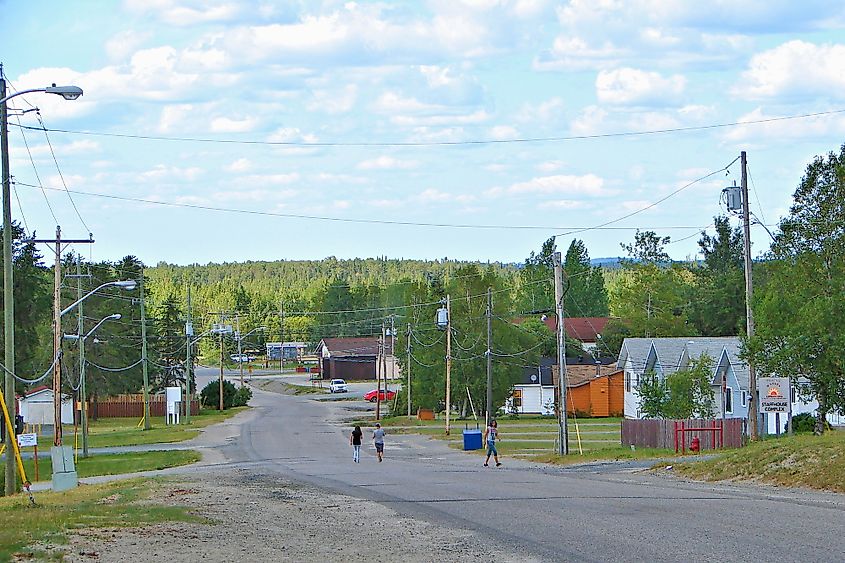
Pickle Lake is famous for more than just its name; it’s the northernmost community in Ontario that can be accessed by road. It’s a wild, remote place where nature is vast and abundant, and where Highway 599 gives way to a gravel road that’s only driveable when packed with ice and snow in winter. So why is this far-flung community named for the world’s most polarizing hamburger topping?
Supposedly, like Crotch Lake, this is a consequence of geography. The story goes that the town’s founders thought the adjacent lake was shaped like a pickle and named it accordingly. On a related note, although it’s no longer exactly a thriving hub, the nearby ghost town of Pickle Crow arguably has an even better name.
Pontypool
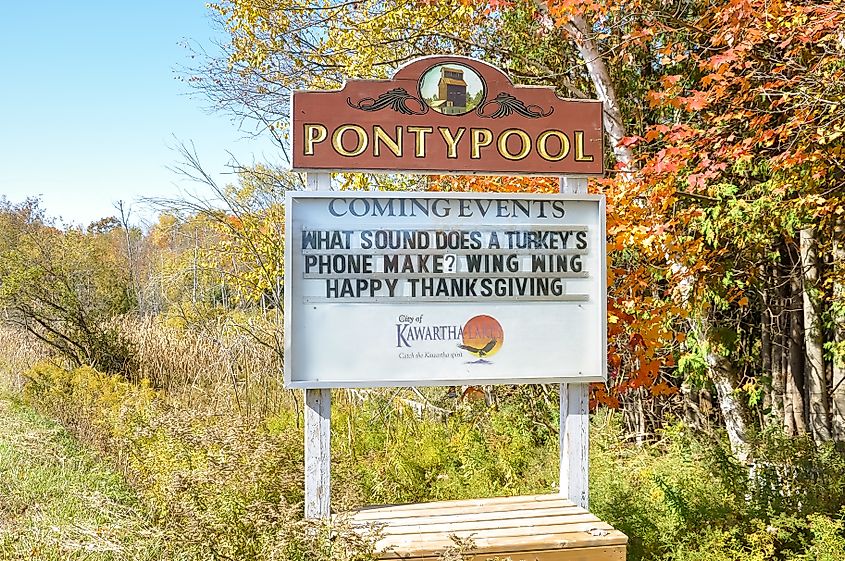
The tiny southern Ontario community of Pontypool is most famous as the setting and title of a cult-classic horror movie. It was also once a favorite resort destination of Ontario’s Jewish settlers. So how did it end up with a name like Pontypool?
Once again, the answer is immigration. Pontypool was founded by a pair of Welsh immigrants who named the town, oh-so-creatively, after their hometown - Pontypool - in Wales. Today, the unincorporated community is part of the amalgamated city of Kawartha Lakes, just over an hour's drive from Toronto. The name might sound funny to English-speaking ears, but it’s no gimmick — only Welsh.
Punkeydoodles Corners
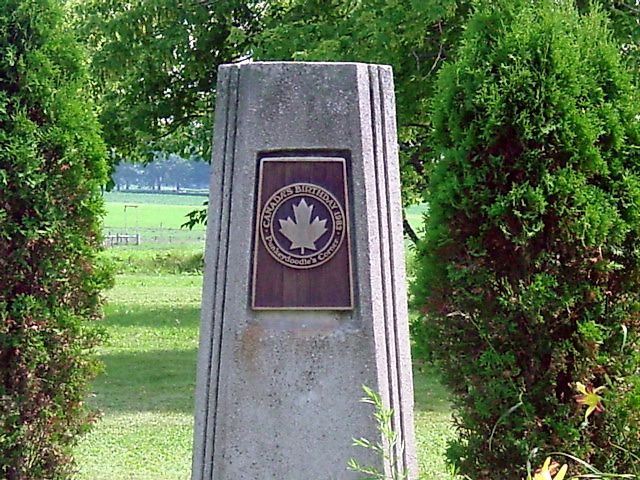
You know a town’s name is something spectacular when its claim to fame is constantly having its road signs stolen. And there are several theories as to how this tiny hamlet in Oxford County ended up with a name like Punkeydoodles Corners.
One posits that “Punkeydoodle” was an insult bandied about by a local woman in an agricultural dispute with a neighbor. Another claims that settler, John Zurbrigg, was given the name “Punkeydoodle” for his short, stout build. But the most widely-accepted story is that a German innkeeper would lead sing-alongs to entertain his guests, only to mix up some of the more obscure English lyrics. According to legend, the innkeeper would frequently perform “Yankee Doodle Dandy,” but pronounce it “punkeydoodle” instead. This, many believe, is the most likely origin of Punkeydoodles Corners’ unusual name.
If you’re road tripping through Ontario, you’re bound to stumble upon a few towns that elicit a chuckle when passing through. But remember that language is fluid. What sounds like a bizarre name in the present day may once have made perfect sense, or could even be the consequence of a linguistic mix-up. So when you see a sign welcoming you to a town with an oddball name, it pays to do a little digging. You’ll often find that the story behind that name has a fascinating history to reveal.
